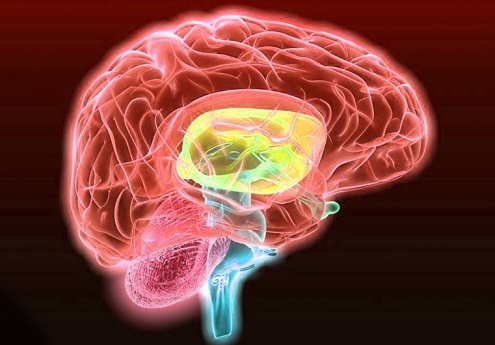Biopolymers Like Chitosan, Collagen, and Alginate Offer New Hope for Neurodegenerative Disease Treatments
Nikhil Prasad Fact checked by:Thailand Medical News Team Feb 24, 2025 1 month, 3 weeks, 23 hours, 19 minutes ago
Medical News: Neurodegenerative diseases such as Alzheimer’s, Parkinson’s, and Huntington’s disease affect millions of people worldwide. These conditions, characterized by the progressive loss of neurons, lead to cognitive decline, movement disorders, and ultimately, severe disability. Unfortunately, current treatments mainly focus on symptom management rather than addressing the underlying causes. Researchers are urgently seeking more effective solutions, and recent scientific advances suggest that biopolymers may hold the key to revolutionizing neurodegenerative disease treatment.
 Biopolymers Like Chitosan, Collagen, and Alginate Offer New Hope for Neurodegenerative Disease Treatments
The Role of Biopolymers in Drug Delivery
Biopolymers Like Chitosan, Collagen, and Alginate Offer New Hope for Neurodegenerative Disease Treatments
The Role of Biopolymers in Drug Delivery
Biopolymers, which include natural and synthetic materials such as chitosan, collagen, and alginate, have emerged as promising candidates for neuroprotection. These substances are known for their biocompatibility, biodegradability, and ability to cross the blood-brain barrier (BBB), a major obstacle in delivering therapeutic agents to the brain. This
Medical News report highlights a recent study investigating how these materials can be used to enhance drug delivery and provide long-term protection for neural tissues.
Key Findings on Chitosan and its Neuroprotective Properties
One of the most promising biopolymers in neurodegenerative research is chitosan, a naturally occurring polysaccharide derived from chitin. Studies have shown that chitosan-based nanoparticles are effective in delivering neuroprotective compounds directly to affected brain areas. Researchers found that chitosan improves dopamine delivery for Parkinson’s disease, enhances antioxidant enzyme activity, and reduces oxidative stress. Furthermore, it has demonstrated the ability to cross the BBB, making it an ideal candidate for targeted drug delivery.
Collagen and Gelatin in Neural Regeneration
Another key material explored in the study is fish collagen and gelatin. These biopolymers have been tested for their ability to promote neural regeneration and repair damaged tissues. Findings suggest that collagen-based scaffolds not only reduce post-traumatic lesion volume but also improve memory and cognitive functions in experimental models. A clinical trial even showed that collagen hydrolysates could enhance synaptic plasticity and cognitive performance, offering new hope for patients suffering from neurodegenerative conditions.
Alginate and its Potential in Drug Delivery
Alginate, a polysaccharide derived from seaweed, has gained attention for its drug delivery capabilities. The study found that polymannuronic acid, a component of alginate, significantly improved motor function and prevented neuronal loss in Parkinson’s disease models. Furthermore, alginate-based hydrogels provided sustained and controlled drug release, reducing systemic exposure and potential side effects. These findings indicate that alginate formulations could offer an effective way to enhance neuroprotecti
ve therapies.
Overcoming Challenges in Biopolymer-Based Treatments
While biopolymer-based therapies show significant potential, challenges remain in their development and application. One of the major hurdles is the need for standardized preparation methods to ensure consistent results in clinical settings.
Additionally, while animal and in vitro studies have provided promising data, large-scale human trials are necessary to confirm the efficacy and safety of these materials. Researchers are also working to improve the mechanical properties of biopolymer scaffolds to enhance their durability and functionality in the nervous system.
A Step Towards Innovative Neuroprotection Strategies
The study concludes that biopolymers offer a highly promising approach for treating neurodegenerative disorders. By improving drug delivery, promoting tissue regeneration, and reducing inflammation, these materials could lead to more effective therapies that go beyond symptom management. However, further research is needed to refine these technologies and translate them into practical treatments for human patients. With continued advancements, biopolymer-based solutions may soon provide a groundbreaking shift in the way neurodegenerative diseases are managed.
The study findings were published in the peer-reviewed journal: Molecules.
https://www.mdpi.com/1420-3049/30/5/1017
For the latest on Neurodegenerative Diseases, keep on logging to Thailand
Medical News.
Read Also:
https://www.thailandmedical.news/news/the-role-of-vitamins-in-protecting-the-brain-and-slowing-neurodegenerative-diseases
https://www.thailandmedical.news/news/xanthohumol-from-the-hop-plant-can-prevent-neurodegenerative-diseases-and-aid-in-brain-health
https://www.thailandmedical.news/news/galanthamine-enhances-neural-stem-cell-differentiation-and-growth-a-major-breakthrough-for-neurodegenerative-diseases
https://www.thailandmedical.news/pages/thailand_doctors_listings
